+JMJ+
In this e-weekly:
- MUST SEE WEBSITE: Institute of School and Parish Development (Catholic Website of the week)
- Pope Francis Declares 3rd Sunday of Ordinary Time "Sunday of the Word of God" (Diocesan News and BEYOND)-READ END OF E-WEEKLY
- The Blessings of a Catholic School (Helpful Hints for Life)
In this e-weekly:
- MUST SEE WEBSITE: Institute of School and Parish Development (Catholic Website of the week)
- Pope Francis Declares 3rd Sunday of Ordinary Time "Sunday of the Word of God" (Diocesan News and BEYOND)-READ END OF E-WEEKLY
- The Blessings of a Catholic School (Helpful Hints for Life)
Jesus sitting in the midst of the teachers
Catholic Good News
Receiving the Gospel, Serving God and Neighbor
Catholic Schools Week
".they found him in the temple, sitting in the midst of the teachers,
listening to them and asking them questions." Luke 2:46
Receiving the Gospel, Serving God and Neighbor
Catholic Schools Week
".they found him in the temple, sitting in the midst of the teachers,
listening to them and asking them questions." Luke 2:46
Dear friends in Christ Jesus,
At the end of January nearly 2 million children celebrate Catholic Schools Week. Many of us may have attended a Catholic school in our time. Many remember the dear nuns, or a wonderful lay teacher who had big shoes to fill, yet brought his or her uniqueness to the classroom.
"Therefore every teacher of the law who has been instructed about the kingdom of heaven is like the owner of a house who brings out of his storeroom new treasures as well as old." Matthew 13:52
Regardless of who taught us and how we were educated, Catholic Schools have a value that is not found elsewhere because what they teach concerns God and heaven, our true home.
"Therefore, he who rejects this instruction does not reject man but God, who gives you his Holy Spirit." 1 Thessalonians 4:8
Solid Catholic Schools and the education and formation they provide are needed now more than ever. To bring one into a real, personal encounter with Jesus Christ and His beloved bride, the Church, on a daily basis is what Catholic Schools seek to do. Yet these blessed institutions do not happen by accident. They occur when the Father's blessing touches the honest, hard work of men and women of faith who love the Faith and children.
"do not be too hard on your children so they will become angry. Instruct them in their growing years with Christian teaching." -Ephesians 6:4
As millions of children continue to experience the blessings of Catholic Schools and celebrate it, let us give thanks to God for these schools, pray for them to bear fruit, and do all we can to support (as those who have went before us have supported them) that which has brought so many blessings to this earth, and so that this blessing will not disappear from the earth.
Peace and prayers in Jesus through Mary, loved by Saint Joseph,
Father Robert
P.S. This coming Sunday is the Fourth Sunday of Ordinary Time. The readings can be found at: https://bible.usccb.org/bible/readings/012923.cfm
At the end of January nearly 2 million children celebrate Catholic Schools Week. Many of us may have attended a Catholic school in our time. Many remember the dear nuns, or a wonderful lay teacher who had big shoes to fill, yet brought his or her uniqueness to the classroom.
"Therefore every teacher of the law who has been instructed about the kingdom of heaven is like the owner of a house who brings out of his storeroom new treasures as well as old." Matthew 13:52
Regardless of who taught us and how we were educated, Catholic Schools have a value that is not found elsewhere because what they teach concerns God and heaven, our true home.
"Therefore, he who rejects this instruction does not reject man but God, who gives you his Holy Spirit." 1 Thessalonians 4:8
Solid Catholic Schools and the education and formation they provide are needed now more than ever. To bring one into a real, personal encounter with Jesus Christ and His beloved bride, the Church, on a daily basis is what Catholic Schools seek to do. Yet these blessed institutions do not happen by accident. They occur when the Father's blessing touches the honest, hard work of men and women of faith who love the Faith and children.
"do not be too hard on your children so they will become angry. Instruct them in their growing years with Christian teaching." -Ephesians 6:4
As millions of children continue to experience the blessings of Catholic Schools and celebrate it, let us give thanks to God for these schools, pray for them to bear fruit, and do all we can to support (as those who have went before us have supported them) that which has brought so many blessings to this earth, and so that this blessing will not disappear from the earth.
Peace and prayers in Jesus through Mary, loved by Saint Joseph,
Father Robert
P.S. This coming Sunday is the Fourth Sunday of Ordinary Time. The readings can be found at: https://bible.usccb.org/bible/readings/012923.cfm
Homilies from Feast of the Baptism of the Lord in past years below (18, 21 minutes respectively):
Version I
Version II
Version I
Version II
✟✟✟✟✟✟ Catholic Questions and Catholic Answers ✟✟✟✟✟✟
259. What is required of one who is to be baptized? (Catechism of the Catholic Church, CCC 1253-1255)
a) a profession of faith
b) a good life
c) an encounter with God
d) all of the above
260. Who can baptize? (CCC 1256, 1284)
a) Bishop
b) an atheist with intention of the Church
c) any Catholic with the intention of the Church
d) all of the above
261. Is Baptism necessary for salvation? (CCC 1257)
a) Yes, for all those to whom the Gospel has been proclaimed
b) Yes, for all who have the possibility of asking for the sacrament
c) No, not if they know not of it
d) all of the above
a) a profession of faith
b) a good life
c) an encounter with God
d) all of the above
260. Who can baptize? (CCC 1256, 1284)
a) Bishop
b) an atheist with intention of the Church
c) any Catholic with the intention of the Church
d) all of the above
261. Is Baptism necessary for salvation? (CCC 1257)
a) Yes, for all those to whom the Gospel has been proclaimed
b) Yes, for all who have the possibility of asking for the sacrament
c) No, not if they know not of it
d) all of the above
Catholic School (from Late Latin catholicus, from Greek katholikos "universal, general"+ from Latin schola, from Greek scholē "discussion, lecture, school")
- an institution under the supervision of the Church whose corporate policy is to train the students in the Gospel message of salvation as taught by the teaching authority of the Catholic Church given to her by Jesus Christ and guaranteed by the Holy Spirit
In the words of the Second Vatican Council, "It is the special function of the Catholic school to develop in the school community an atmosphere animated by a spirit of liberty and charity based on the Gospel. It enables young people, while developing their own personality, to grow at the same time in that new life which has been given them at baptism. Finally it so orients the whole of human culture to the message of salvation that the knowledge which the pupils acquire of the world, of life and of men is illumined by faith. Thus, the Catholic school, taking into consideration as it should the conditions of an age of progress, prepares its pupils to contribute effectively to the welfare of the world of men and to work for the extension of the kingdom of God" (Declaration on Christian Education, 8).
- an institution under the supervision of the Church whose corporate policy is to train the students in the Gospel message of salvation as taught by the teaching authority of the Catholic Church given to her by Jesus Christ and guaranteed by the Holy Spirit
In the words of the Second Vatican Council, "It is the special function of the Catholic school to develop in the school community an atmosphere animated by a spirit of liberty and charity based on the Gospel. It enables young people, while developing their own personality, to grow at the same time in that new life which has been given them at baptism. Finally it so orients the whole of human culture to the message of salvation that the knowledge which the pupils acquire of the world, of life and of men is illumined by faith. Thus, the Catholic school, taking into consideration as it should the conditions of an age of progress, prepares its pupils to contribute effectively to the welfare of the world of men and to work for the extension of the kingdom of God" (Declaration on Christian Education, 8).
"Lord, I believe, help my unbelief."
-prayer of Saint Augustine of Hippo
-prayer of Saint Augustine of Hippo
"Helpful Hints of Life"
The Blessings of a Catholic School
A Catholic School Helps To Teach Children How To Pray
Prayer is what connects us to God and is communication with God, so it is central to the life of any human person.
Catholic Schools assist parents and families in the necessary and essential task of teaching children how to pray.
. Children do not only pray at Catholic Schools multiple times throughout the day,
they are taught how to pray, listening to God and responding to His call and direction.
. Teachers and staff not only pray themselves, but witness lives of prayer to students.
. Prayer is not just something done as much as it is something lived.
Catholic Schools move students and families to become persons of living prayer moment to moment, day to day.
"We chose a Catholic school for our children to help them grow in the faith. The children learn in an environment that constantly reinforces Catholic values. Their academic year is busy and challenging yet the focus is always the teaching of Christ. Our attempts at parenting and educating our children center around planting seeds of faith that will carry the growth into adulthood." - St. Joseph School parent, Vancouver
A Catholic Education is a Challenging Education
High standards, strong motivation, effective discipline and an atmosphere of caring combine to foster
excellence and a high quality of student performance is supported by the evidence.
. Catholic school students score an average of 20% higher than state scores on norm-reference and achievement tests.
. Research shows that because of a greater emphasis on homework and study,
Catholic school students develop more effective writing skills.
. Catholic high school students attend post-secondary education at a rate of 97%
and are more likely to complete their program of studies.
. Catholic school students graduate from high school at a rate of 99%.
"A Catholic education is based in the values of respect, shared knowledge and love. These
values support a nurturing structure where students can thrive and grow. Starting from a base
of respect and love, students are given knowledge that will prepare them for high school and a
lifetime of learning. Catholic education has an unmatched tradition of success in bringing out
the best in students around the world." - Roger VanOosten, Our Lady of the Lake, Seattle
-------------------------------------------------------------------------------------------------------------------------------------------
Have you considered a Catholic Education for your child?
-------------------------------------------------------------------------------------------------------------------------------------------
A Catholic School is a Community
Parents and family are recognized as the primary educators and Catholic Schools join with them to form a living community of shared visions.
. Catholic schools join with the family to help students understand their special place in the family, the Church, and society.
. Catholic schools encourage family input and involvement in the ongoing education of their children.
Research shows that such a partnership results in higher attendance rates and lower dropout rates.
. Catholic schools strive to create a special bond among the students, the home, the school, and the
Church, so that all share the strong sense of community.
. The Catholic community shares the cost of education where tuition is often supplemented by the parish.
"There is something powerful about Catholic school communities that allow us to come
together, to be together, to trust one another in the kind of fellowship that allows us to care for
one another in long and lasting and enduring and committed ways." - Ed Taylor, St. Therese, Seattle
A Catholic Education Fosters Compassion and Service
. All schools include service learning and community service, starting with the Kindergarten.
. In Catholic schools there is a mutual respect which exists among students, faculty, and
administrators which generates an atmosphere of care and concern.
. Catholic schools help students understand that each person is unique and valuable.
. Catholic school students are more likely go on to serve the Church and society as lay and religious leaders.
"When my father passed away 19 years ago, I transferred from a public school to a Catholic
school in eighth grade. The acceptance and support I found there helped me deal with my
grief. I continued on to Catholic high school and college because of my experience. I am
grateful for the many blessings I received from Catholic school."
- St. Frances Cabrini School parent, Tacoma
"Young people of the third millennium must be a source of energy and leadership in our Church and our nation. Therefore, we must provide young people with an academically rigorous and doctrinally sound program of education and faith formation designed to strengthen their union with Christ and his Church. Catholic schools collaborate with parents and guardians in raising and forming their children as families struggle with the changing and challenging cultural and moral contexts in which they find themselves. Catholic schools provide young people with sound Church teaching through a broad-based curriculum, where faith and culture are intertwined in all areas of a school's life. By equipping our young people with a sound education, rooted in the Gospel message, the Person of Jesus Christ, and rich in the cherished traditions and liturgical practices of our faith, we ensure that they have the foundation to live morally and uprightly in our complex modern world. This unique Catholic identity makes our Catholic elementary and secondary schools "schools for the human person" and allows them to fill a critical role in the future life of our Church, our country, and our world."
(US Bishops: Catholic Schools on the Threshold, no. 9)
------------------------------------------------------------------------------------------------------------------------------------------------------------------
Why Parents Choose A Catholic School For Their Child
"My kids have all come to school and been really shy. Yet, over the years they opened up and
by the time they're in the upper grades they do really well. . . . my kids have excelled here,
they've done really well, they love their friends, and they've loved everything about school."
- Paul Sauvage, St. Joseph, Seattle
"I chose a Catholic school education for my children because of the gospel values that
permeate the curriculum, the opportunity for daily prayer and reflection, and the reinforcement
of what we as parents teach our children at home. Teamwork!"
- St. Brendan School parent, Bothell
"There are a lot of good schools of all kinds, but at many of them the ethic seems to be: 'What
are you going to do for my precious child?' In Catholic school the ethic is 'What are we -
together - going to do for our precious children?'"
- David Horsey, St. Benedict, Seattle
"A Catholic School is a great place for your children to learn and grow. The community and school families welcome new students and make families feel welcome. Children learn in small class sizes and are able to benefit with one on one attention when needed. The afterschool program helps students with parents that can be there after school to pick them up."
St. Michael School parent, Radom, Illinois
In a very special way, parents share in the office of sanctifying "by leading a conjugal life in the Christian spirit and by seeing to the Christian education of their children."
-Catechism of the Catholic Church 2226
Prayer is what connects us to God and is communication with God, so it is central to the life of any human person.
Catholic Schools assist parents and families in the necessary and essential task of teaching children how to pray.
. Children do not only pray at Catholic Schools multiple times throughout the day,
they are taught how to pray, listening to God and responding to His call and direction.
. Teachers and staff not only pray themselves, but witness lives of prayer to students.
. Prayer is not just something done as much as it is something lived.
Catholic Schools move students and families to become persons of living prayer moment to moment, day to day.
"We chose a Catholic school for our children to help them grow in the faith. The children learn in an environment that constantly reinforces Catholic values. Their academic year is busy and challenging yet the focus is always the teaching of Christ. Our attempts at parenting and educating our children center around planting seeds of faith that will carry the growth into adulthood." - St. Joseph School parent, Vancouver
A Catholic Education is a Challenging Education
High standards, strong motivation, effective discipline and an atmosphere of caring combine to foster
excellence and a high quality of student performance is supported by the evidence.
. Catholic school students score an average of 20% higher than state scores on norm-reference and achievement tests.
. Research shows that because of a greater emphasis on homework and study,
Catholic school students develop more effective writing skills.
. Catholic high school students attend post-secondary education at a rate of 97%
and are more likely to complete their program of studies.
. Catholic school students graduate from high school at a rate of 99%.
"A Catholic education is based in the values of respect, shared knowledge and love. These
values support a nurturing structure where students can thrive and grow. Starting from a base
of respect and love, students are given knowledge that will prepare them for high school and a
lifetime of learning. Catholic education has an unmatched tradition of success in bringing out
the best in students around the world." - Roger VanOosten, Our Lady of the Lake, Seattle
-------------------------------------------------------------------------------------------------------------------------------------------
Have you considered a Catholic Education for your child?
-------------------------------------------------------------------------------------------------------------------------------------------
A Catholic School is a Community
Parents and family are recognized as the primary educators and Catholic Schools join with them to form a living community of shared visions.
. Catholic schools join with the family to help students understand their special place in the family, the Church, and society.
. Catholic schools encourage family input and involvement in the ongoing education of their children.
Research shows that such a partnership results in higher attendance rates and lower dropout rates.
. Catholic schools strive to create a special bond among the students, the home, the school, and the
Church, so that all share the strong sense of community.
. The Catholic community shares the cost of education where tuition is often supplemented by the parish.
"There is something powerful about Catholic school communities that allow us to come
together, to be together, to trust one another in the kind of fellowship that allows us to care for
one another in long and lasting and enduring and committed ways." - Ed Taylor, St. Therese, Seattle
A Catholic Education Fosters Compassion and Service
. All schools include service learning and community service, starting with the Kindergarten.
. In Catholic schools there is a mutual respect which exists among students, faculty, and
administrators which generates an atmosphere of care and concern.
. Catholic schools help students understand that each person is unique and valuable.
. Catholic school students are more likely go on to serve the Church and society as lay and religious leaders.
"When my father passed away 19 years ago, I transferred from a public school to a Catholic
school in eighth grade. The acceptance and support I found there helped me deal with my
grief. I continued on to Catholic high school and college because of my experience. I am
grateful for the many blessings I received from Catholic school."
- St. Frances Cabrini School parent, Tacoma
"Young people of the third millennium must be a source of energy and leadership in our Church and our nation. Therefore, we must provide young people with an academically rigorous and doctrinally sound program of education and faith formation designed to strengthen their union with Christ and his Church. Catholic schools collaborate with parents and guardians in raising and forming their children as families struggle with the changing and challenging cultural and moral contexts in which they find themselves. Catholic schools provide young people with sound Church teaching through a broad-based curriculum, where faith and culture are intertwined in all areas of a school's life. By equipping our young people with a sound education, rooted in the Gospel message, the Person of Jesus Christ, and rich in the cherished traditions and liturgical practices of our faith, we ensure that they have the foundation to live morally and uprightly in our complex modern world. This unique Catholic identity makes our Catholic elementary and secondary schools "schools for the human person" and allows them to fill a critical role in the future life of our Church, our country, and our world."
(US Bishops: Catholic Schools on the Threshold, no. 9)
------------------------------------------------------------------------------------------------------------------------------------------------------------------
Why Parents Choose A Catholic School For Their Child
"My kids have all come to school and been really shy. Yet, over the years they opened up and
by the time they're in the upper grades they do really well. . . . my kids have excelled here,
they've done really well, they love their friends, and they've loved everything about school."
- Paul Sauvage, St. Joseph, Seattle
"I chose a Catholic school education for my children because of the gospel values that
permeate the curriculum, the opportunity for daily prayer and reflection, and the reinforcement
of what we as parents teach our children at home. Teamwork!"
- St. Brendan School parent, Bothell
"There are a lot of good schools of all kinds, but at many of them the ethic seems to be: 'What
are you going to do for my precious child?' In Catholic school the ethic is 'What are we -
together - going to do for our precious children?'"
- David Horsey, St. Benedict, Seattle
"A Catholic School is a great place for your children to learn and grow. The community and school families welcome new students and make families feel welcome. Children learn in small class sizes and are able to benefit with one on one attention when needed. The afterschool program helps students with parents that can be there after school to pick them up."
St. Michael School parent, Radom, Illinois
In a very special way, parents share in the office of sanctifying "by leading a conjugal life in the Christian spirit and by seeing to the Christian education of their children."
-Catechism of the Catholic Church 2226
Home
WHAT WE DO Institute for School & Parish Development (ISPD) is a national development consulting firm working exclusively with Catholic schools and parishes. We serve Catholic schools, parishes, and dioceses by helping them create and establish effective processes that engage people and invite resources from their community to assist their mission implementation. Thus,
www.ispdconsulting.com
Bring People, Process, and Ministry to build the Kingdom of God. ISPD is your Catholic School Enrollment Solution for maintaining and/or increasing the quantity, quality, or diversity of your elementary or secondary Catholic school enrollment. These are the words with which they describe themselves. This site is excellent in that it takes a holistic, yet practical approach to the needs of Catholic Schools and Parishes today, and yet does not veer from the Gospel when it comes to meeting these needs with true charity and love of neighbor.
"The parish is the Eucharistic community and the heart of the liturgical life of Christian families;
it is a privileged place for the catechesis of children and parents."
-Catechism of the Catholic Church 2226
it is a privileged place for the catechesis of children and parents."
-Catechism of the Catholic Church 2226
Best Parish Practices
CELEBRATE "SUNDAY OF THE WORD OF GOD" ON THE 3RD SUNDAY OF ORDINARY TIME
Pope Francis in Sept., 2019, asked directed that the 3rd Sunday of Ordinary Time also be designated Sunday of Word of God. The Word of God is living and effective and meant to wash over our lives.
BENEFITS:
Our Lord had the hearts of his disciples on the road to Emmaus burning within them as he explained the Sacred Scriptures. Jesus prayed the Sacred Scriptures as all devout Jews of His time. By drawing closer to the love letters of our Heavenly Father, we will be more fed spiritually, and be more able to feed the true hunger of others.
HOW:
Check in with your Parish Priest, and see what might be going on. And then with his permission, possibly do some of the following: Pass out good material on the Sunday readings this Sunday. Give a special blessing of lectors at the Sunday Masses. Challenge parishioners to read the entire chapter that each Sunday reading comes from. Look for Diocesan opportunities to share with your local parish.
Pope Francis in Sept., 2019, asked directed that the 3rd Sunday of Ordinary Time also be designated Sunday of Word of God. The Word of God is living and effective and meant to wash over our lives.
BENEFITS:
Our Lord had the hearts of his disciples on the road to Emmaus burning within them as he explained the Sacred Scriptures. Jesus prayed the Sacred Scriptures as all devout Jews of His time. By drawing closer to the love letters of our Heavenly Father, we will be more fed spiritually, and be more able to feed the true hunger of others.
HOW:
Check in with your Parish Priest, and see what might be going on. And then with his permission, possibly do some of the following: Pass out good material on the Sunday readings this Sunday. Give a special blessing of lectors at the Sunday Masses. Challenge parishioners to read the entire chapter that each Sunday reading comes from. Look for Diocesan opportunities to share with your local parish.
Knights of Columbus Donates 1500th Ultrasound Machine
Choice Women's Resource Center in New Brunswick, N.J. | Knights of Columbus
By Joe Bukuras
Metuchen, N.J., Jan 21
Metuchen, N.J., Jan 21
The Knights of Columbus donated an ultrasound machine to a New Jersey pregnancy center on Wednesday, a charitable milestone that marks the fraternal organization’s 1500th donation of the technology.
The Knights of Columbus is the world’s largest Catholic fraternal organization, with more than 2 million members in 16,000 councils worldwide.
The donation is part of a Knights’ initiative which began in 2009. Since then, the Knights have donated ultrasound machines in all 50 states.
The Jan. 19 donation was given to First Choice Women’s Resource Center in New Brunswick, New Jersey. Supreme Knight Patrick Kelly attended a dedication ceremony of the machine, which included a blessing of the machine by Bishop James Checchio of Metuchen.
Kelly said that the Knights of Columbus believes that every human life has dignity and worth.
“Our Founder, Blessed Michael McGivney, devoted his life to the care of widows and orphans,” he said. “We continue the Order’s mission by working tirelessly, through prayer and action, to support mothers and their children, both unborn and born.”
The founder of the Knights of Columbus, Blessed Michael McGivney, was beatified in October 2020.
The cost of the ultrasound machines are entirely covered by the Knights of Columbus. Half of the cost is fundraised by local councils, while the Supreme Council covers the rest of the funds.
“Now is a crucial moment for life. Our compassion, understanding and generous support are all essential,” Kelly said. “Our bold witness is needed to change not only laws, but also hearts and minds.”
The total value of all donated ultrasound machines surpasses $72 million.
From 2018 through 2020, local Knights councils have contributed almost $14 million worth of funds and supplies to pregnancy resource centers and maternity homes. They also assisted those organizations by offering more than 1.3 million volunteer hours.
The Knights of Columbus also puts its pro-life beliefs into action through many other pro-life programs, including Marches for Life, diaper drives, Special Olympics, Masses for people with special needs, and more.
The Knights of Columbus is the world’s largest Catholic fraternal organization, with more than 2 million members in 16,000 councils worldwide.
The donation is part of a Knights’ initiative which began in 2009. Since then, the Knights have donated ultrasound machines in all 50 states.
The Jan. 19 donation was given to First Choice Women’s Resource Center in New Brunswick, New Jersey. Supreme Knight Patrick Kelly attended a dedication ceremony of the machine, which included a blessing of the machine by Bishop James Checchio of Metuchen.
Kelly said that the Knights of Columbus believes that every human life has dignity and worth.
“Our Founder, Blessed Michael McGivney, devoted his life to the care of widows and orphans,” he said. “We continue the Order’s mission by working tirelessly, through prayer and action, to support mothers and their children, both unborn and born.”
The founder of the Knights of Columbus, Blessed Michael McGivney, was beatified in October 2020.
The cost of the ultrasound machines are entirely covered by the Knights of Columbus. Half of the cost is fundraised by local councils, while the Supreme Council covers the rest of the funds.
“Now is a crucial moment for life. Our compassion, understanding and generous support are all essential,” Kelly said. “Our bold witness is needed to change not only laws, but also hearts and minds.”
The total value of all donated ultrasound machines surpasses $72 million.
From 2018 through 2020, local Knights councils have contributed almost $14 million worth of funds and supplies to pregnancy resource centers and maternity homes. They also assisted those organizations by offering more than 1.3 million volunteer hours.
The Knights of Columbus also puts its pro-life beliefs into action through many other pro-life programs, including Marches for Life, diaper drives, Special Olympics, Masses for people with special needs, and more.
‘Word of God’ Sunday a Chance to Strengthen Catholics’ Scripture Understanding, Scholars Say
- Jack Lyons
Jan 25, 2020
JOURNALISM INTERN
SOUTH BEND, Indiana - As the worldwide Catholic Church prepares to celebrate the first Sunday of the Word of God this weekend, Bible scholars in the U.S. hope the commemoration strengthens Scriptural devotion in American households.
Since Catholicism is imbued with sacramental celebrations, scholars note that Scripture can take a backseat to other aspects of church life. Statistics support this conjecture, with over 50 percent of Catholics saying they seldom or never read the Bible, according to a 2014 Pew survey. That compares to just 18 percent of Evangelical Protestants who rarely crack open the Good Book.
However, the reticence to read Scripture is understandable from the perspective of Bible scholars. Catholics were not widely encouraged to read Scripture until the 20th century, when Pope Pius XII extolled the practice in his encyclical Divino Afflante Spiritu in 1943. Over two decades later, the Second Vatican Council produced Dei Verbum, which amplified Pius’s message to a wider audience.
Dr. Gina Hens-Piazza, President of the Catholic Biblical Association of America, told Crux she feels some Catholics are afraid to read the Bible, worrying they might err in their interpretation.
Despite this, “the Catholic believer has an opportunity, and perhaps even a responsibility, to become a student of Scripture,” she said.
Hens-Piazza, who is a professor of Old Testament studies at Jesuit School of Theology, said the Church should “empower” people and inform them that “they have the capacity to study Scripture.”
Hens-Piazza noted that while many “bright” people attend American parishes, “their understanding of Scripture - if they ever get occasion to study it - probably ended at a very early age.”
Scripture, she said, often requires more reflective thinking than young children can muster.
Holy Cross Father Adam Booth, a doctoral student studying the New Testament at Duke University, said the desire for more Catholics to read Scripture likely influenced the institution of Sunday of the Word of God.
Booth compared the decision by Pope Francis to establish this Sunday’s event to Pope John Paul II’s institution of the Luminous Mysteries in 2002.
“Sometimes we look at the range of things we commemorate liturgically, and we see what’s missing,” he said.
Booth said the “gaps” that form in how we devote our prayer - such as the earthly life of Jesus in the case of the Luminous Mysteries - are aspects of faith dealt with so often, they are sometimes not celebrated.
While the Bible is present in both the readings and many of the prayers at Mass, Booth said there’s no clear time to reflect on “the gift that God has given us words.”
Sunday of the Word of God falls on the third Sunday in Ordinary Time and will become an annual occasion for the Church. None of the readings or propers of the Mass will change, but Francis hopes congregations throughout the world will celebrate “with a certain solemnity.”
While churches decide how to create that “certain solemnity” on an individual level, Booth and Hens-Piazza both had suggestions on how to celebrate the occasion.
Hens-Piazza said the creation of something called lexical groups could be a resource for parishes to further explore Scripture.
She explained the concept: “Whoever is responsible for homilies the following Sunday would invite a sample of members of the community” to a session during the week, where the readings would be discussed. From there, the homilist could “let the homily grow out of that discussion.”
With lexical groups, what parishioners reflect on in the readings “actually becomes a part of what is the preaching message,” Hens-Piazza said.
She also said parishes could take a moment during this weekend’s Mass to bless and recognize ministers of the Word in the congregation.
Booth told Crux on Tuesday that he had not yet prepared his homily for the weekend, but planned to preach on the idea of how the New Testament fulfills the Old Testament, a concept found in Sunday’s readings.
Noting that Catholics do not read the whole Bible through readings at Mass, Booth suggested reading beyond the selected passage for a given Sunday to gain more context of the Scriptures.
“If we’re reading six verses from Matthew 3 this week, why don’t you sit down and read the whole of Mathew 3?” he offered.
Both Booth and Hens-Piazza said that reviewing the Sunday readings ahead of time is a great tactic for families with young children.
“It can give the kids a sense of something to listen for,” said Booth. “They can pick out in advance something that might be meaningful for their family.”
While Sunday of the Word of God might shine a light on a soft spot for American Catholics, Hens-Piazza said she hopes the annual event will spread new ways to encounter the Bible.
“There’s so many things we can do that Catholics have a 15- or 20-minute introduction to three texts,” she said.
God Always Chooses The 'Little Ones,' Pope Francis Reflects(http://www.catholicnewsagency.com/new.php?n=28833)
VATICAN CITY, January 21 (CNA/EWTN News) .- In his daily Mass, Pope Francis noted how God seeks to have a personal relationship with each of us, emphasizing that he favors those who are humble and small because he is able to dialogue with them.
"There is a relationship between God and us little ones: God, when he must choose people, even his own people, he always chooses the little ones," the Pope said during his Jan. 21 homily.
Addressing those who were present in the Vatican's Saint Martha guesthouse, Pope Francis centered his homily on the day's first reading, taken from the First Book of Samuel in which the prophet anoints David as king upon the Lord's rejection of his older brothers.
Turning his thoughts to our own personal relationship with God, the Pope highlighted how we are God's people, and that "in a people, everyone has his post."
However, the pontiff said that although we belong to the People of God, "the Lord never speaks to the people like this, to the mass, never."
"He always speaks personally, with names. And he personally chooses," the Pope explained, adding that the story of creation shows us this because "it is the same Lord that with his hands made man and gave him a name: 'You are called Adam.'"
"And so begins that story between God and the person. And another thing, there is a relationship between God and us little ones: God, when he must choose people, even his own people, he always chooses the little ones."
Emphasizing how there is always a "dialogue between God and human littleness," the Pope recalled the words of Mary in her Gospel canticle when she said that "the Lord has looked upon my humility."
Returning to the first reading, the pontiff observed that we can see this attitude of the Lord "clearly" when Samuel first thinks that Jesse's eldest son is to be the anointed one because he is "tall" and "big," but instead the Lord tells him "at his appearance or his height," because "I have rejected him because it does not matter what man sees."
Instead, the Lord chooses David, the youngest, who "did not count for his father," the Pope continued, highlighting how the Lord chooses according to his own criteria, and not that of the world.
He chooses "the weak and the meek, to confound the mighty of the earth," the Pope said, recalling that although Jesse said that he was not home, David "was elected."
"All of us with Baptism have been elected by the Lord. We all are elected. He has chosen us one by one," he observed, adding that God "has given us a name and he watches over us" and that "there is a dialogue, because the Lord loves in this way."
"Even David became king, and then he made a mistake...he has made many perhaps, but the Bible tells us of two big ones, two heavy mistakes."
However, after committing these sins, "What did David do?" the pontiff asked, recalling that "He humbled himself. And returned to his littleness and said: 'I am a sinner.' And asked pardon and did penance."
David "kept his smallness, with repentance, with prayer, with tears," the Pope explained, adding that in thinking about this dialogue between "the Lord and our smallness," we can wonder where lays "Christian faithfulness?"
"Christian fidelity, our fidelity, is simply to preserve our littleness, so that it can dialogue with the Lord," he reflected, "preserve our littleness."
"For this reason, humility, gentleness, meekness, are so important in the life of the Christian because it is a custody of smallness that the Lord likes to look at. And it will always be a dialogue between our littleness and the greatness of the Lord."
Bringing his homily to a close, Pope Francis prayed through the intercession of Saint David, and "also through the intercession of the Virgin Mary who sang joyfully to God, because she had guarded her humility," that "the Lord gives us the grace to guard our littleness in front of Him."
As those first responsible for the education of their children, parents have the right to choose a school for them which corresponds to their own convictions. This right is fundamental. As far as possible parents have the duty of choosing schools that will best help them in their task as Christian educators. Public authorities have the duty of guaranteeing this parental right and of ensuring the concrete conditions for its exercise.
- Catechism of the Catholic Church 2229
Since Catholicism is imbued with sacramental celebrations, scholars note that Scripture can take a backseat to other aspects of church life. Statistics support this conjecture, with over 50 percent of Catholics saying they seldom or never read the Bible, according to a 2014 Pew survey. That compares to just 18 percent of Evangelical Protestants who rarely crack open the Good Book.
However, the reticence to read Scripture is understandable from the perspective of Bible scholars. Catholics were not widely encouraged to read Scripture until the 20th century, when Pope Pius XII extolled the practice in his encyclical Divino Afflante Spiritu in 1943. Over two decades later, the Second Vatican Council produced Dei Verbum, which amplified Pius’s message to a wider audience.
Dr. Gina Hens-Piazza, President of the Catholic Biblical Association of America, told Crux she feels some Catholics are afraid to read the Bible, worrying they might err in their interpretation.
Despite this, “the Catholic believer has an opportunity, and perhaps even a responsibility, to become a student of Scripture,” she said.
Hens-Piazza, who is a professor of Old Testament studies at Jesuit School of Theology, said the Church should “empower” people and inform them that “they have the capacity to study Scripture.”
Hens-Piazza noted that while many “bright” people attend American parishes, “their understanding of Scripture - if they ever get occasion to study it - probably ended at a very early age.”
Scripture, she said, often requires more reflective thinking than young children can muster.
Holy Cross Father Adam Booth, a doctoral student studying the New Testament at Duke University, said the desire for more Catholics to read Scripture likely influenced the institution of Sunday of the Word of God.
Booth compared the decision by Pope Francis to establish this Sunday’s event to Pope John Paul II’s institution of the Luminous Mysteries in 2002.
“Sometimes we look at the range of things we commemorate liturgically, and we see what’s missing,” he said.
Booth said the “gaps” that form in how we devote our prayer - such as the earthly life of Jesus in the case of the Luminous Mysteries - are aspects of faith dealt with so often, they are sometimes not celebrated.
While the Bible is present in both the readings and many of the prayers at Mass, Booth said there’s no clear time to reflect on “the gift that God has given us words.”
Sunday of the Word of God falls on the third Sunday in Ordinary Time and will become an annual occasion for the Church. None of the readings or propers of the Mass will change, but Francis hopes congregations throughout the world will celebrate “with a certain solemnity.”
While churches decide how to create that “certain solemnity” on an individual level, Booth and Hens-Piazza both had suggestions on how to celebrate the occasion.
Hens-Piazza said the creation of something called lexical groups could be a resource for parishes to further explore Scripture.
She explained the concept: “Whoever is responsible for homilies the following Sunday would invite a sample of members of the community” to a session during the week, where the readings would be discussed. From there, the homilist could “let the homily grow out of that discussion.”
With lexical groups, what parishioners reflect on in the readings “actually becomes a part of what is the preaching message,” Hens-Piazza said.
She also said parishes could take a moment during this weekend’s Mass to bless and recognize ministers of the Word in the congregation.
Booth told Crux on Tuesday that he had not yet prepared his homily for the weekend, but planned to preach on the idea of how the New Testament fulfills the Old Testament, a concept found in Sunday’s readings.
Noting that Catholics do not read the whole Bible through readings at Mass, Booth suggested reading beyond the selected passage for a given Sunday to gain more context of the Scriptures.
“If we’re reading six verses from Matthew 3 this week, why don’t you sit down and read the whole of Mathew 3?” he offered.
Both Booth and Hens-Piazza said that reviewing the Sunday readings ahead of time is a great tactic for families with young children.
“It can give the kids a sense of something to listen for,” said Booth. “They can pick out in advance something that might be meaningful for their family.”
While Sunday of the Word of God might shine a light on a soft spot for American Catholics, Hens-Piazza said she hopes the annual event will spread new ways to encounter the Bible.
“There’s so many things we can do that Catholics have a 15- or 20-minute introduction to three texts,” she said.
God Always Chooses The 'Little Ones,' Pope Francis Reflects(http://www.catholicnewsagency.com/new.php?n=28833)
VATICAN CITY, January 21 (CNA/EWTN News) .- In his daily Mass, Pope Francis noted how God seeks to have a personal relationship with each of us, emphasizing that he favors those who are humble and small because he is able to dialogue with them.
"There is a relationship between God and us little ones: God, when he must choose people, even his own people, he always chooses the little ones," the Pope said during his Jan. 21 homily.
Addressing those who were present in the Vatican's Saint Martha guesthouse, Pope Francis centered his homily on the day's first reading, taken from the First Book of Samuel in which the prophet anoints David as king upon the Lord's rejection of his older brothers.
Turning his thoughts to our own personal relationship with God, the Pope highlighted how we are God's people, and that "in a people, everyone has his post."
However, the pontiff said that although we belong to the People of God, "the Lord never speaks to the people like this, to the mass, never."
"He always speaks personally, with names. And he personally chooses," the Pope explained, adding that the story of creation shows us this because "it is the same Lord that with his hands made man and gave him a name: 'You are called Adam.'"
"And so begins that story between God and the person. And another thing, there is a relationship between God and us little ones: God, when he must choose people, even his own people, he always chooses the little ones."
Emphasizing how there is always a "dialogue between God and human littleness," the Pope recalled the words of Mary in her Gospel canticle when she said that "the Lord has looked upon my humility."
Returning to the first reading, the pontiff observed that we can see this attitude of the Lord "clearly" when Samuel first thinks that Jesse's eldest son is to be the anointed one because he is "tall" and "big," but instead the Lord tells him "at his appearance or his height," because "I have rejected him because it does not matter what man sees."
Instead, the Lord chooses David, the youngest, who "did not count for his father," the Pope continued, highlighting how the Lord chooses according to his own criteria, and not that of the world.
He chooses "the weak and the meek, to confound the mighty of the earth," the Pope said, recalling that although Jesse said that he was not home, David "was elected."
"All of us with Baptism have been elected by the Lord. We all are elected. He has chosen us one by one," he observed, adding that God "has given us a name and he watches over us" and that "there is a dialogue, because the Lord loves in this way."
"Even David became king, and then he made a mistake...he has made many perhaps, but the Bible tells us of two big ones, two heavy mistakes."
However, after committing these sins, "What did David do?" the pontiff asked, recalling that "He humbled himself. And returned to his littleness and said: 'I am a sinner.' And asked pardon and did penance."
David "kept his smallness, with repentance, with prayer, with tears," the Pope explained, adding that in thinking about this dialogue between "the Lord and our smallness," we can wonder where lays "Christian faithfulness?"
"Christian fidelity, our fidelity, is simply to preserve our littleness, so that it can dialogue with the Lord," he reflected, "preserve our littleness."
"For this reason, humility, gentleness, meekness, are so important in the life of the Christian because it is a custody of smallness that the Lord likes to look at. And it will always be a dialogue between our littleness and the greatness of the Lord."
Bringing his homily to a close, Pope Francis prayed through the intercession of Saint David, and "also through the intercession of the Virgin Mary who sang joyfully to God, because she had guarded her humility," that "the Lord gives us the grace to guard our littleness in front of Him."
As those first responsible for the education of their children, parents have the right to choose a school for them which corresponds to their own convictions. This right is fundamental. As far as possible parents have the duty of choosing schools that will best help them in their task as Christian educators. Public authorities have the duty of guaranteeing this parental right and of ensuring the concrete conditions for its exercise.
- Catechism of the Catholic Church 2229
A bit of humor.
Some Thoughts :
- I grew a beard thinking it would say "Distinguished Gentleman." Instead, turns out it says, "Senior Discount, Please!"
-I just found out I'm colorblind. The diagnosis came completely out of the purple.
- I bet you I could stop gambling.
-Two antennas met on a roof, fell in love and got married. The ceremony wasn’t much, but the reception was excellent.
-668 – The neighbor of the beast.
-It’s bad luck to be superstitious.
Rare Phone Call - My mother, a master of guilt trips, showed me a photo of herself waiting by a phone that never rings. "Mom, I call all the time," I said. "If you had voicemail, you’d know." Soon after, my brother installed it for her.
When I called the next time, I got her message: "If you are a salesperson, press one. If you’re a friend, press two. If you’re my daughter who never calls, press 911 because the shock will probably give me a heart attack."Aged To PerfectionThe average age of people living in our military retirement community is 85. Recently, a neighbor turned 100, and a big birthday party was thrown. Even his son turned up. “How old are you?” a tenant asked. “I’m 81 years old,” he answered. The tenant shook her head. “They sure grow up fast, don’t they?”
One Sunday morning, a priest wakes up and decides to go golfing. He calls the retired priest and says that he feels very sick, and won't be able to go to offer the Mass.
Way up in heaven, Saint Peter sees all this and asks God, ''Are you really going to let him get away with this?''
''I'll take care of it,'' says God.
The priest drives about five to six hours away, so he doesn't bump into anyone he knows. The golf course is empty when he gets there. So he takes his first swing, drives the ball 495 yards away and gets a hole in one.
Saint Peter watches in disbelief and asks, '' Why did you let him do that?''
To this God says, ''Who's he going to tell?''
10 Things You Never Hear in Church
1. Hey! It's my turn to sit in the front pew!
2. I was so enthralled, I never noticed your sermon went 25 minutes over time.
3. Personally I find witnessing to the Gospel much more enjoyable than golf.
4. I've decided to give our church the $500 a month I used to send to TV evangelists.
5. I volunteer to be the permanent teacher for the Junior High Sunday School class.
6. Forget the denominational minimum salary. Let's pay our pastor so he can live like we do.
7. I love it when we sing hymns I've never heard before!
8. Since we're all here, let's start the service early.
9. Pastor, we'd like to send you to this Bible seminar in the Bahamas.
10. Nothing inspires me and strengthens my commitment like our annual stewardship campaign!
Some Thoughts :
- I grew a beard thinking it would say "Distinguished Gentleman." Instead, turns out it says, "Senior Discount, Please!"
-I just found out I'm colorblind. The diagnosis came completely out of the purple.
- I bet you I could stop gambling.
-Two antennas met on a roof, fell in love and got married. The ceremony wasn’t much, but the reception was excellent.
-668 – The neighbor of the beast.
-It’s bad luck to be superstitious.
Rare Phone Call - My mother, a master of guilt trips, showed me a photo of herself waiting by a phone that never rings. "Mom, I call all the time," I said. "If you had voicemail, you’d know." Soon after, my brother installed it for her.
When I called the next time, I got her message: "If you are a salesperson, press one. If you’re a friend, press two. If you’re my daughter who never calls, press 911 because the shock will probably give me a heart attack."Aged To PerfectionThe average age of people living in our military retirement community is 85. Recently, a neighbor turned 100, and a big birthday party was thrown. Even his son turned up. “How old are you?” a tenant asked. “I’m 81 years old,” he answered. The tenant shook her head. “They sure grow up fast, don’t they?”
One Sunday morning, a priest wakes up and decides to go golfing. He calls the retired priest and says that he feels very sick, and won't be able to go to offer the Mass.
Way up in heaven, Saint Peter sees all this and asks God, ''Are you really going to let him get away with this?''
''I'll take care of it,'' says God.
The priest drives about five to six hours away, so he doesn't bump into anyone he knows. The golf course is empty when he gets there. So he takes his first swing, drives the ball 495 yards away and gets a hole in one.
Saint Peter watches in disbelief and asks, '' Why did you let him do that?''
To this God says, ''Who's he going to tell?''
10 Things You Never Hear in Church
1. Hey! It's my turn to sit in the front pew!
2. I was so enthralled, I never noticed your sermon went 25 minutes over time.
3. Personally I find witnessing to the Gospel much more enjoyable than golf.
4. I've decided to give our church the $500 a month I used to send to TV evangelists.
5. I volunteer to be the permanent teacher for the Junior High Sunday School class.
6. Forget the denominational minimum salary. Let's pay our pastor so he can live like we do.
7. I love it when we sing hymns I've never heard before!
8. Since we're all here, let's start the service early.
9. Pastor, we'd like to send you to this Bible seminar in the Bahamas.
10. Nothing inspires me and strengthens my commitment like our annual stewardship campaign!
Prayer to Saint Thomas Aquinas for Catholic Schools
(Saint Thomas is the patron of Catholic Schools)
Saint Thomas Aquinas, you are called by Holy Mother Church, the Angel of the Schools. Your wisdom, gathered through long meditation from the source of all wisdom, the most Holy Trinity, has long been a shining light in the Catholic Church. Ignorance of the things of God is a darkness now enveloping the minds of many of our countrymen. In this darkness, we need an angel like you who will protect, foster, and nourish the schools we have, and guide and strengthen us in establishing and building newer and more adequate schools for the instruction of our children in the ways of Christ. Help and bless the generous sisters, brothers, priests, lay men and women who labor so unselfishly in the classroom to spread the knowledge of Christ. Inspire our Catholic men and women to be most generous in the support of the schools we have. Grant to parents the wise generosity they need in all areas, but especially to give their child back to God when that child wishes to follow a priestly or religious vocation. Help us, Saint Thomas, Angel of the Schools, to understand what you taught, and to follow your example. Amen.
(Saint Thomas is the patron of Catholic Schools)
Saint Thomas Aquinas, you are called by Holy Mother Church, the Angel of the Schools. Your wisdom, gathered through long meditation from the source of all wisdom, the most Holy Trinity, has long been a shining light in the Catholic Church. Ignorance of the things of God is a darkness now enveloping the minds of many of our countrymen. In this darkness, we need an angel like you who will protect, foster, and nourish the schools we have, and guide and strengthen us in establishing and building newer and more adequate schools for the instruction of our children in the ways of Christ. Help and bless the generous sisters, brothers, priests, lay men and women who labor so unselfishly in the classroom to spread the knowledge of Christ. Inspire our Catholic men and women to be most generous in the support of the schools we have. Grant to parents the wise generosity they need in all areas, but especially to give their child back to God when that child wishes to follow a priestly or religious vocation. Help us, Saint Thomas, Angel of the Schools, to understand what you taught, and to follow your example. Amen.
+JMJ+
SUNDAY MASS READINGS AND QUESTIONS
for Self-Reflection, Couples or Family Discussion
Fourth Sunday in Ordinary Time – Sunday, January 29th, 2023
The First Reading -Zephaniah 2:3; 3:12-13
Seek the LORD, all you humble of the earth, who have observed his law; seek justice, seek humility; perhaps you may be sheltered on the day of the LORD's anger. But I will leave as a remnant in your midst a people humble and lowly, who shall take refuge in the name of the LORD: the remnant of Israel. They shall do no wrong and speak no lies; nor shall there be found in their mouths a deceitful tongue; they shall pasture and couch their flocks with none to disturb them.
Reflection
In the First Reading, God's prophet, Zephaniah, called the covenant people to repentance. He reminded the Israelites that the threat of the Lord’s "Day of Judgment" did not preclude the hope of conversion and the salvation of the humble who submitted themselves to God. The Bible often mentions the humble and oppressed poor of the earth and identifies them by the Hebrew word aniyyim. In Zephaniah's message, like Jesus's teaching in the Beatitudes (Gospel Reading), the identity of covenant members who are humble and obedient assumes a moral and eschatological significance. They possess the spiritual attributes in which a professing believer submits to the will of God and obediently follows His commands, persevering in hardships to remain God's "faithful remnant."
Adults - Repentance is an important part of continued conversion. Try practicing a daily Examen each night, reflection on your day with the Lord, giving thanks for all of your blessings and seeking forgiveness for your sins. If it’s been awhile since you have received the Sacrament of Reconciliation, resolve to do so.
Teens - What is true humility and why is it so important? (Hint: It’s not thinking less of yourself!)
Kids - Why does God want people to repent?
Responsorial- Psalm 146:6-10
R. (Mt 5:3) Blessed are the poor in spirit; the kingdom of heaven is theirs!
The LORD keeps faith forever,
secures justice for the oppressed,
gives food to the hungry.
The LORD sets captives free.
R. Blessed are the poor in spirit; the kingdom of heaven is theirs! The LORD gives sight to the blind;
the LORD raises up those who were bowed down.
The LORD loves the just;
the LORD protects strangers.
R. Blessed are the poor in spirit; the kingdom of heaven is theirs!
The fatherless and the widow the LORD sustains,
but the way of the wicked he thwarts.
The LORD shall reign forever;
your God, O Zion, through all generations. Alleluia.
R. Blessed are the poor in spirit; the kingdom of heaven is theirs!
Reflection
Our Responsorial Psalm is the first psalm of the third section of the Hallel ("praise God") Psalms, 146-150. The priests and the congregation recited this psalm in the morning liturgical service seven days a week in the Jerusalem Temple. The psalm beings with "my God," referring to the God of Israel, and concludes with "your God, O Zion," referring to the Old Covenant Church and the faithful who worship God and proclaim His holy name to all nations throughout all generations. What are you praising God for this week?
The Second Reading- 1 Corinthians 1:26-31
Consider your own calling, brothers and sisters. Not many of you were wise by human standards, not many were powerful, not many were of noble birth. Rather, God chose the foolish of the world to shame the wise, and God chose the weak of the world to shame the strong, and God chose the lowly and despised of the world, those who count for nothing, to reduce to nothing those who are something, so that no human being might boast before God. It is due to him that you are in Christ Jesus, who became for us wisdom from God, as well as righteousness, sanctification, and redemption, so that, as it is written, "Whoever boasts, should boast in the Lord."
Reflection - In the Second Reading, St. Paul told the church at Corinth that God calls us to discipleship and gives each one who answers the call a vocation. He emphasizes that the initiative lies with God, telling them three times that He chose them and did not base His choice on human standards of wisdom or status. Paul reminds the Corinthians that God is the source of their life in Christ Jesus, and the response to God's call makes a person a member of Christ's Body through the Sacrament of Baptism. And, if a disciple is humble in submitting himself to the gift of God's grace, they will gradually become more and more Christ-like. Therefore, we shouldn't boast of our works on behalf of Christ because our good deeds result from Christ working through us.
-A vocation is different than a job. If you do not know the difference, particularly in the Catholic worldview, do some research this week.
The Holy Gospel according to Matthew 5:1-12
When Jesus saw the crowds, he went up the mountain, and after he had sat down, his disciples came to him. He began to teach them, saying: "Blessed are the poor in spirit, for theirs is the kingdom of heaven. Blessed are they who mourn, for they will be comforted. Blessed are the meek, for they will inherit the land. Blessed are they who hunger and thirst for righteousness, for they will be satisfied. Blessed are the merciful, for they will be shown mercy. Blessed are the clean of heart, for they will see God. Blessed are the peacemakers, for they will be called children of God. Blessed are they who are persecuted for the sake of righteousness, for theirs is the kingdom of heaven. Blessed are you when they insult you and persecute you and utter every kind of evil against you falsely because of me. Rejoice and be glad, for your reward will be great in heaven."
Reflection In the Gospel Reading, Jesus teaches us the blessings of the Beatitudes, the spiritual attributes for everyone who answers God's call to be Jesus Christ's disciple. Like the passage in the First Reading, the Beatitudes have a spiritual message and an eschatological fulfillment. They promise eternal blessedness and salvation but not in this world. The eternal nature of the promised blessings of the Beatitudes was not possible under the sacramental system of the Old Covenant Church. The Law of Moses could only identify sin but could not promise everlasting salvation (see Catechism of the Catholic Church #1716-1724; 1961-64). The Beatitudes are the blueprint for a radically transformed life in the Spirit of God. Attaining the perfection of each of the Beatitudes is a step forward on the road to eternal salvation.
Adults - Is there a certain Beatitude you need to learn more about or work on? Resolve to do so.
Teens - Try praying and working on a Beatitude in your life, a new one each month.
Kids - Why did Jesus give us the Beatitudes?
LIVING THE WORD OF GOD THIS WEEK! - “The first recipients of the Beatitudes are, in fact, the ‘poor in spirit’, an expression that indicates those who have their hearts and consciences directed intimately to Our Lord. They are the expression of the just who are tried by moments of suffering and difficulties. However, they are called ‘blessed’ and ‘happy’ because God’s merciful and compassionate gaze rests on them. These are the poor that the Bible text really refers to. The poor in the Bible are the humbled, the ‘anawîm’, who bear a burden on their shoulders. They are given God’s favor and because of this the Word identifies them as just, meek and humble. All kinds of attitudes are included in the eight beatitudes. This way the true significance of the ‘just poor’ is revealed; the ones who don’t confide mainly in themselves but in God. The poor are those who detach themselves concretely and interiorly from the possession of persons and things and above all of themselves. The poor don’t find security in the gods of this world like success, power or pride but the true Lord God in Heaven.
Thus, the poor, meek and humble become a scandal before the world because they witness that one can found our lives on God, with the same certainty of His constant presence and so they confirm the existence and works of God. Each one of us is invited to verify where our certainty rests and if our daily life and actions proclaim God’s efficacious presence in the world.” —From the Dicastery for the Clergy
259. What is required of one who is to be baptized? a) a profession of faith
Everyone who is to be baptized is required to make a profession of faith. This is done personally in the case of an adult or by the parents and by the Church in the case of infants. Also the godfather or the godmother and the whole ecclesial community share the responsibility for baptismal preparation (catechumenate) as well as for the development and safeguarding of the faith and grace given at baptism.
260. Who can baptize? d) all of the above
The ordinary ministers of Baptism are the bishop and the priest. In the Latin Church the deacon also can baptize. In case of necessity any person can baptize provided he has the intention of doing what the Church does. This is done by pouring water on the head of the candidate while saying the Trinitarian formula for Baptism: “I baptize you in the name of the Father and of the Son and of the Holy Spirit”.
261. Is Baptism necessary for salvation? d) all of the above
Baptism is necessary for salvation for all those to whom the Gospel has been proclaimed and who have had the possibility of asking for this sacrament. Jesus answered, “Amen, amen, I say to you, no one can enter the kingdom of God without being born of water and Spirit.” -John 3:5
SUNDAY MASS READINGS AND QUESTIONS
for Self-Reflection, Couples or Family Discussion
Fourth Sunday in Ordinary Time – Sunday, January 29th, 2023
The First Reading -Zephaniah 2:3; 3:12-13
Seek the LORD, all you humble of the earth, who have observed his law; seek justice, seek humility; perhaps you may be sheltered on the day of the LORD's anger. But I will leave as a remnant in your midst a people humble and lowly, who shall take refuge in the name of the LORD: the remnant of Israel. They shall do no wrong and speak no lies; nor shall there be found in their mouths a deceitful tongue; they shall pasture and couch their flocks with none to disturb them.
Reflection
In the First Reading, God's prophet, Zephaniah, called the covenant people to repentance. He reminded the Israelites that the threat of the Lord’s "Day of Judgment" did not preclude the hope of conversion and the salvation of the humble who submitted themselves to God. The Bible often mentions the humble and oppressed poor of the earth and identifies them by the Hebrew word aniyyim. In Zephaniah's message, like Jesus's teaching in the Beatitudes (Gospel Reading), the identity of covenant members who are humble and obedient assumes a moral and eschatological significance. They possess the spiritual attributes in which a professing believer submits to the will of God and obediently follows His commands, persevering in hardships to remain God's "faithful remnant."
Adults - Repentance is an important part of continued conversion. Try practicing a daily Examen each night, reflection on your day with the Lord, giving thanks for all of your blessings and seeking forgiveness for your sins. If it’s been awhile since you have received the Sacrament of Reconciliation, resolve to do so.
Teens - What is true humility and why is it so important? (Hint: It’s not thinking less of yourself!)
Kids - Why does God want people to repent?
Responsorial- Psalm 146:6-10
R. (Mt 5:3) Blessed are the poor in spirit; the kingdom of heaven is theirs!
The LORD keeps faith forever,
secures justice for the oppressed,
gives food to the hungry.
The LORD sets captives free.
R. Blessed are the poor in spirit; the kingdom of heaven is theirs! The LORD gives sight to the blind;
the LORD raises up those who were bowed down.
The LORD loves the just;
the LORD protects strangers.
R. Blessed are the poor in spirit; the kingdom of heaven is theirs!
The fatherless and the widow the LORD sustains,
but the way of the wicked he thwarts.
The LORD shall reign forever;
your God, O Zion, through all generations. Alleluia.
R. Blessed are the poor in spirit; the kingdom of heaven is theirs!
Reflection
Our Responsorial Psalm is the first psalm of the third section of the Hallel ("praise God") Psalms, 146-150. The priests and the congregation recited this psalm in the morning liturgical service seven days a week in the Jerusalem Temple. The psalm beings with "my God," referring to the God of Israel, and concludes with "your God, O Zion," referring to the Old Covenant Church and the faithful who worship God and proclaim His holy name to all nations throughout all generations. What are you praising God for this week?
The Second Reading- 1 Corinthians 1:26-31
Consider your own calling, brothers and sisters. Not many of you were wise by human standards, not many were powerful, not many were of noble birth. Rather, God chose the foolish of the world to shame the wise, and God chose the weak of the world to shame the strong, and God chose the lowly and despised of the world, those who count for nothing, to reduce to nothing those who are something, so that no human being might boast before God. It is due to him that you are in Christ Jesus, who became for us wisdom from God, as well as righteousness, sanctification, and redemption, so that, as it is written, "Whoever boasts, should boast in the Lord."
Reflection - In the Second Reading, St. Paul told the church at Corinth that God calls us to discipleship and gives each one who answers the call a vocation. He emphasizes that the initiative lies with God, telling them three times that He chose them and did not base His choice on human standards of wisdom or status. Paul reminds the Corinthians that God is the source of their life in Christ Jesus, and the response to God's call makes a person a member of Christ's Body through the Sacrament of Baptism. And, if a disciple is humble in submitting himself to the gift of God's grace, they will gradually become more and more Christ-like. Therefore, we shouldn't boast of our works on behalf of Christ because our good deeds result from Christ working through us.
-A vocation is different than a job. If you do not know the difference, particularly in the Catholic worldview, do some research this week.
The Holy Gospel according to Matthew 5:1-12
When Jesus saw the crowds, he went up the mountain, and after he had sat down, his disciples came to him. He began to teach them, saying: "Blessed are the poor in spirit, for theirs is the kingdom of heaven. Blessed are they who mourn, for they will be comforted. Blessed are the meek, for they will inherit the land. Blessed are they who hunger and thirst for righteousness, for they will be satisfied. Blessed are the merciful, for they will be shown mercy. Blessed are the clean of heart, for they will see God. Blessed are the peacemakers, for they will be called children of God. Blessed are they who are persecuted for the sake of righteousness, for theirs is the kingdom of heaven. Blessed are you when they insult you and persecute you and utter every kind of evil against you falsely because of me. Rejoice and be glad, for your reward will be great in heaven."
Reflection In the Gospel Reading, Jesus teaches us the blessings of the Beatitudes, the spiritual attributes for everyone who answers God's call to be Jesus Christ's disciple. Like the passage in the First Reading, the Beatitudes have a spiritual message and an eschatological fulfillment. They promise eternal blessedness and salvation but not in this world. The eternal nature of the promised blessings of the Beatitudes was not possible under the sacramental system of the Old Covenant Church. The Law of Moses could only identify sin but could not promise everlasting salvation (see Catechism of the Catholic Church #1716-1724; 1961-64). The Beatitudes are the blueprint for a radically transformed life in the Spirit of God. Attaining the perfection of each of the Beatitudes is a step forward on the road to eternal salvation.
Adults - Is there a certain Beatitude you need to learn more about or work on? Resolve to do so.
Teens - Try praying and working on a Beatitude in your life, a new one each month.
Kids - Why did Jesus give us the Beatitudes?
LIVING THE WORD OF GOD THIS WEEK! - “The first recipients of the Beatitudes are, in fact, the ‘poor in spirit’, an expression that indicates those who have their hearts and consciences directed intimately to Our Lord. They are the expression of the just who are tried by moments of suffering and difficulties. However, they are called ‘blessed’ and ‘happy’ because God’s merciful and compassionate gaze rests on them. These are the poor that the Bible text really refers to. The poor in the Bible are the humbled, the ‘anawîm’, who bear a burden on their shoulders. They are given God’s favor and because of this the Word identifies them as just, meek and humble. All kinds of attitudes are included in the eight beatitudes. This way the true significance of the ‘just poor’ is revealed; the ones who don’t confide mainly in themselves but in God. The poor are those who detach themselves concretely and interiorly from the possession of persons and things and above all of themselves. The poor don’t find security in the gods of this world like success, power or pride but the true Lord God in Heaven.
Thus, the poor, meek and humble become a scandal before the world because they witness that one can found our lives on God, with the same certainty of His constant presence and so they confirm the existence and works of God. Each one of us is invited to verify where our certainty rests and if our daily life and actions proclaim God’s efficacious presence in the world.” —From the Dicastery for the Clergy
259. What is required of one who is to be baptized? a) a profession of faith
Everyone who is to be baptized is required to make a profession of faith. This is done personally in the case of an adult or by the parents and by the Church in the case of infants. Also the godfather or the godmother and the whole ecclesial community share the responsibility for baptismal preparation (catechumenate) as well as for the development and safeguarding of the faith and grace given at baptism.
260. Who can baptize? d) all of the above
The ordinary ministers of Baptism are the bishop and the priest. In the Latin Church the deacon also can baptize. In case of necessity any person can baptize provided he has the intention of doing what the Church does. This is done by pouring water on the head of the candidate while saying the Trinitarian formula for Baptism: “I baptize you in the name of the Father and of the Son and of the Holy Spirit”.
261. Is Baptism necessary for salvation? d) all of the above
Baptism is necessary for salvation for all those to whom the Gospel has been proclaimed and who have had the possibility of asking for this sacrament. Jesus answered, “Amen, amen, I say to you, no one can enter the kingdom of God without being born of water and Spirit.” -John 3:5
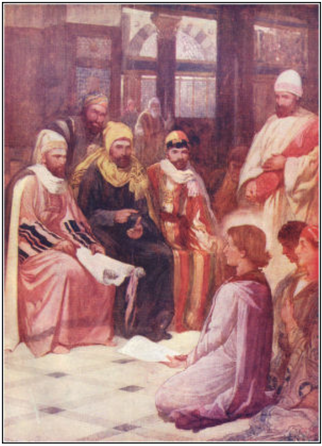
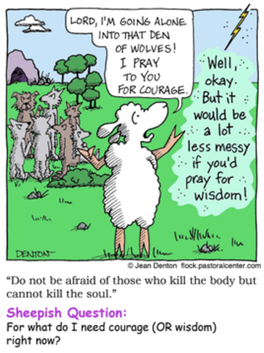
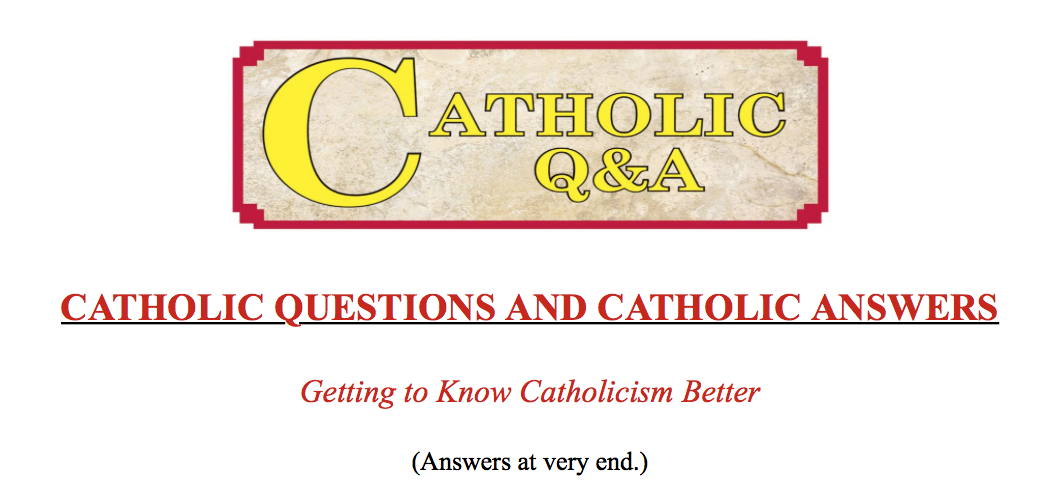
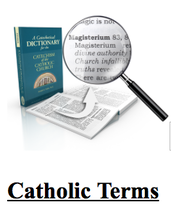
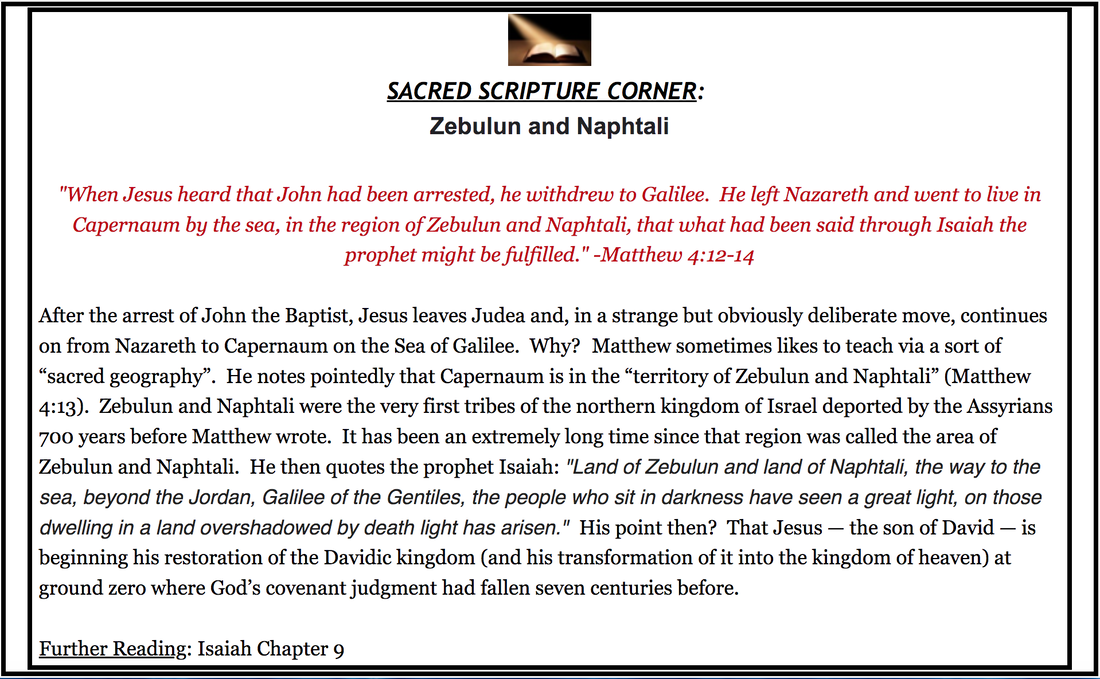
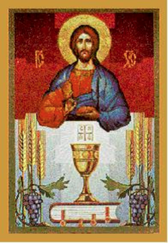



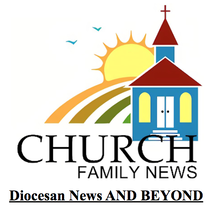
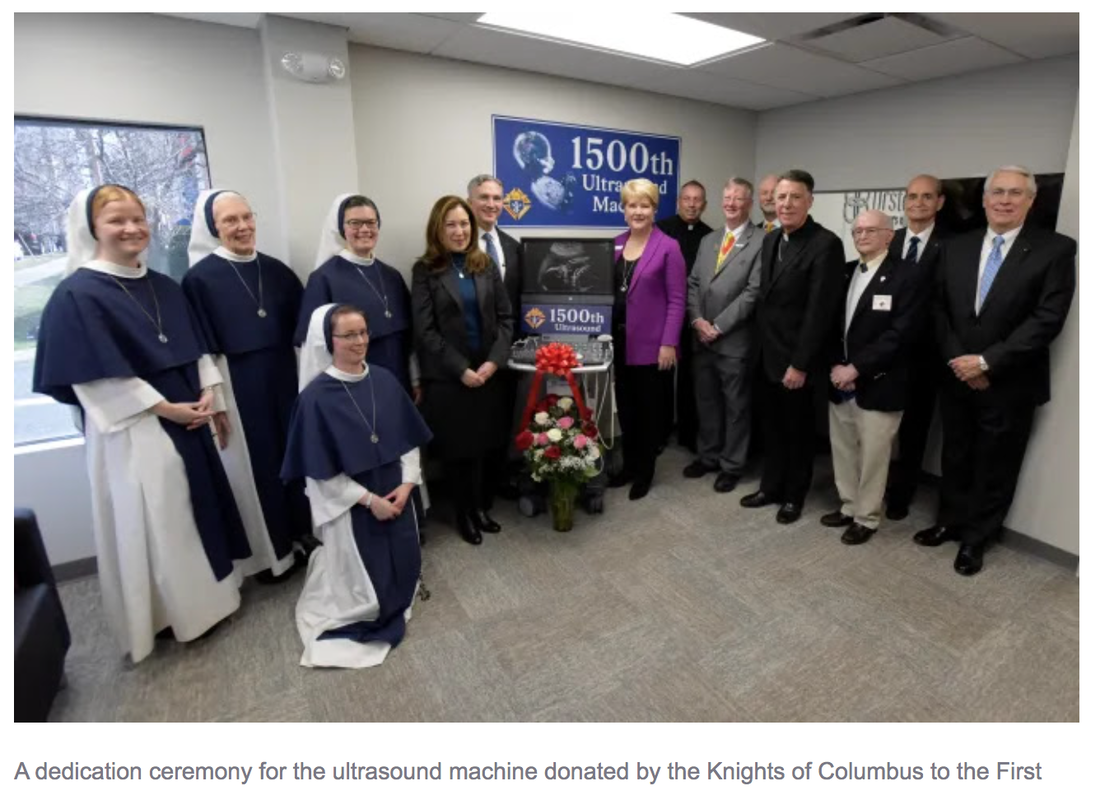



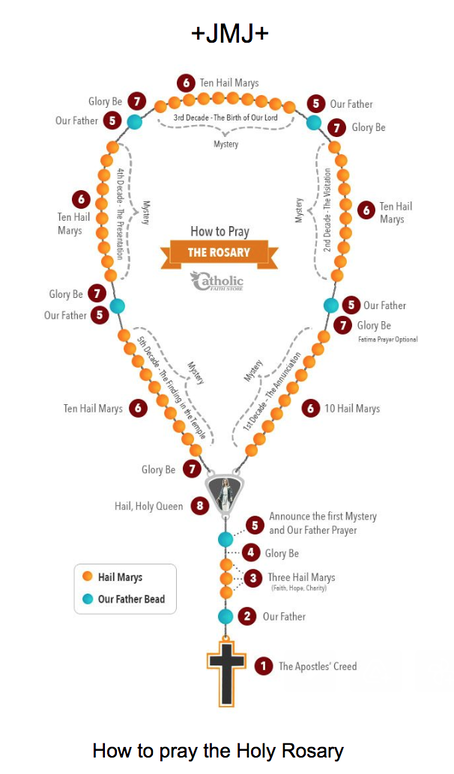
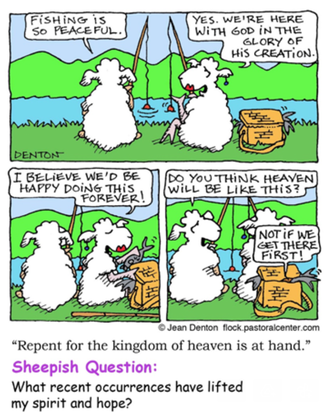
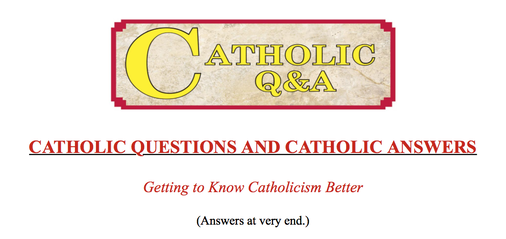
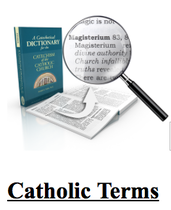
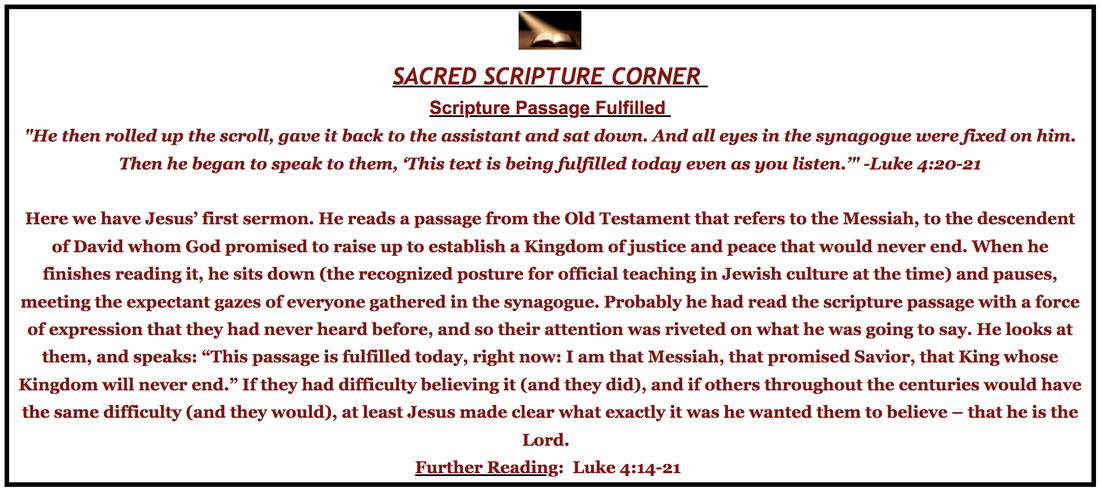
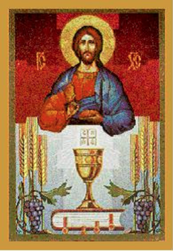



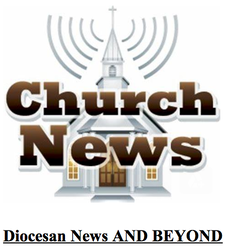


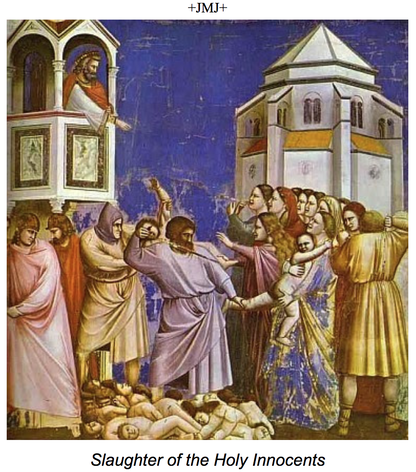
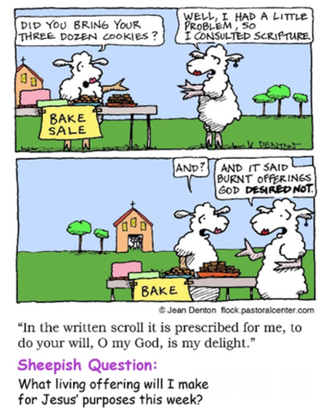
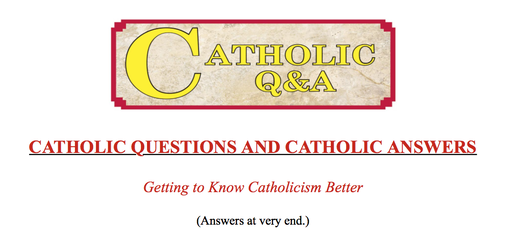
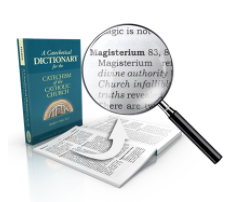
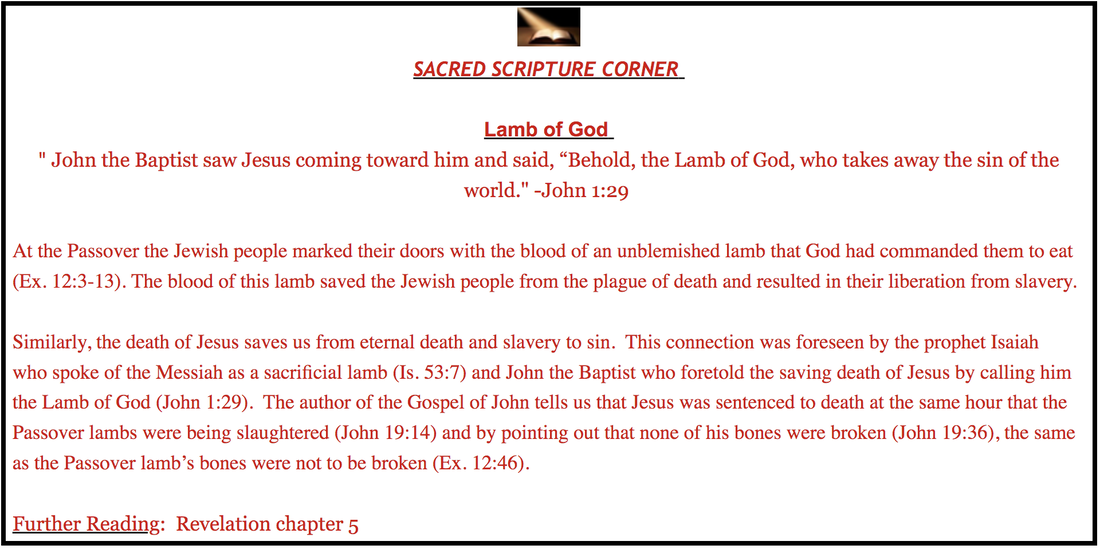
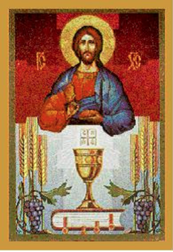


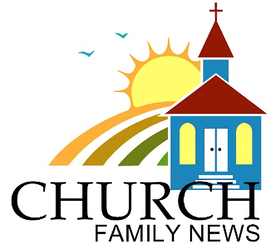

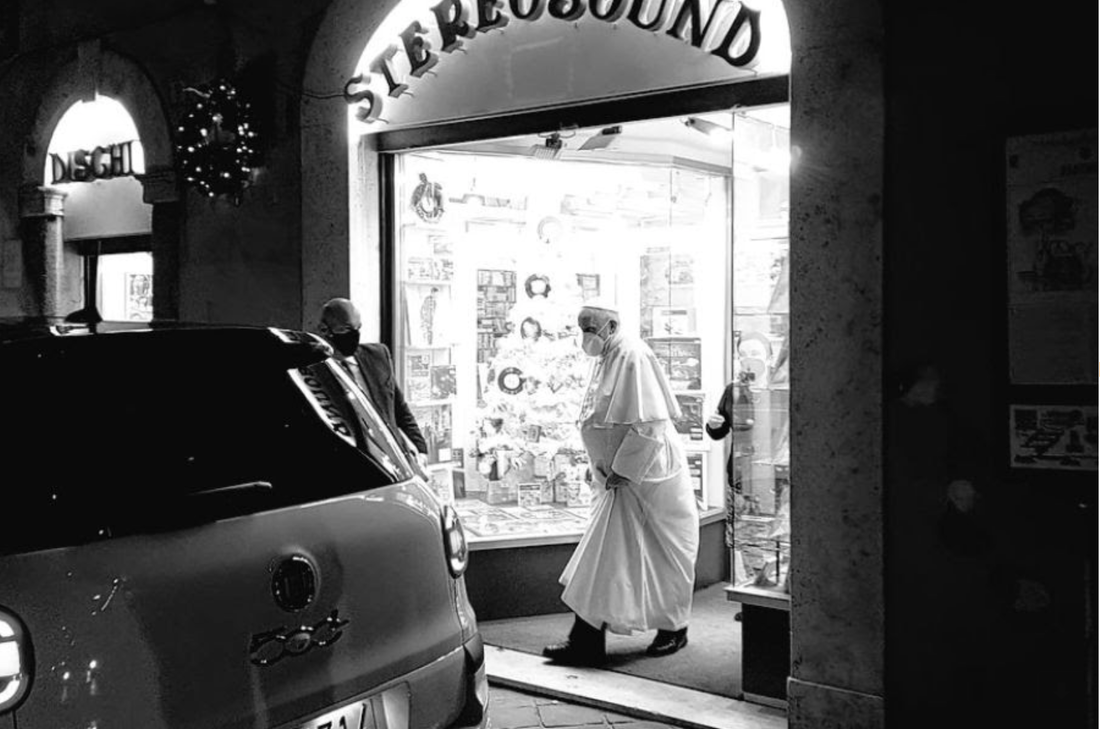
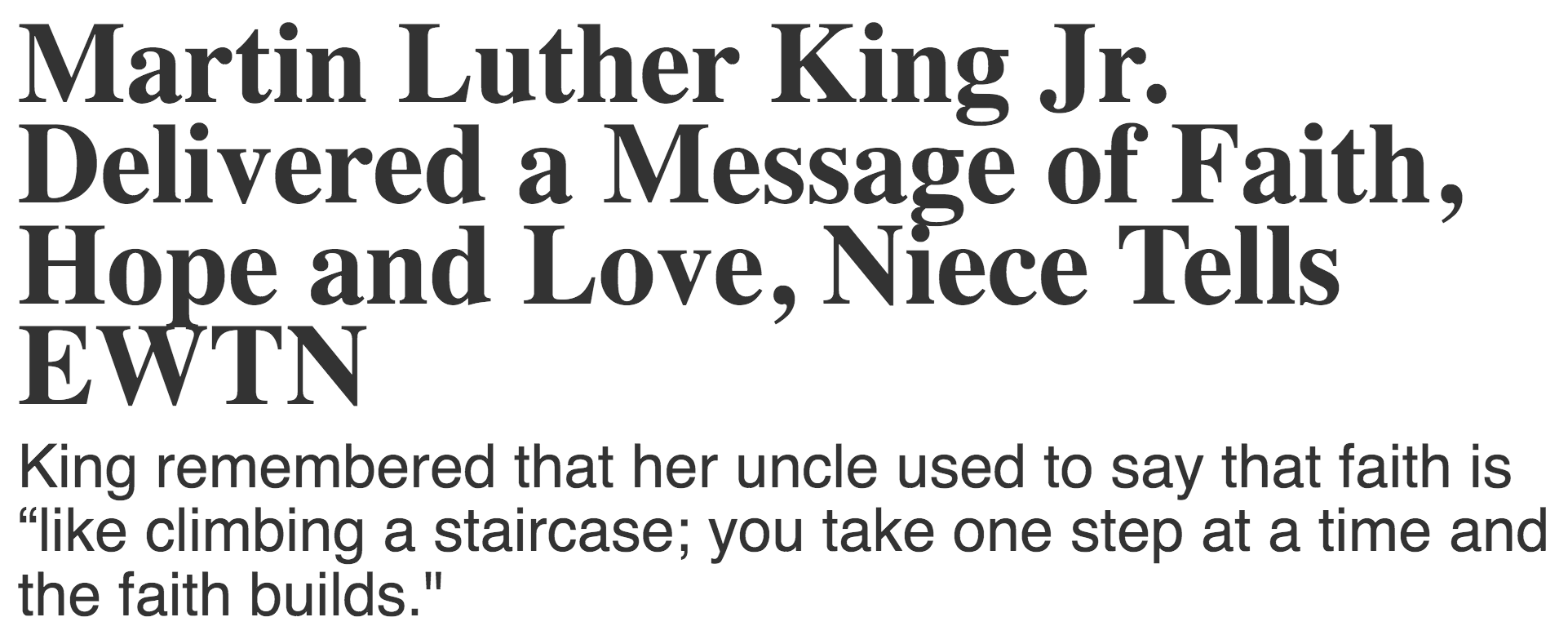
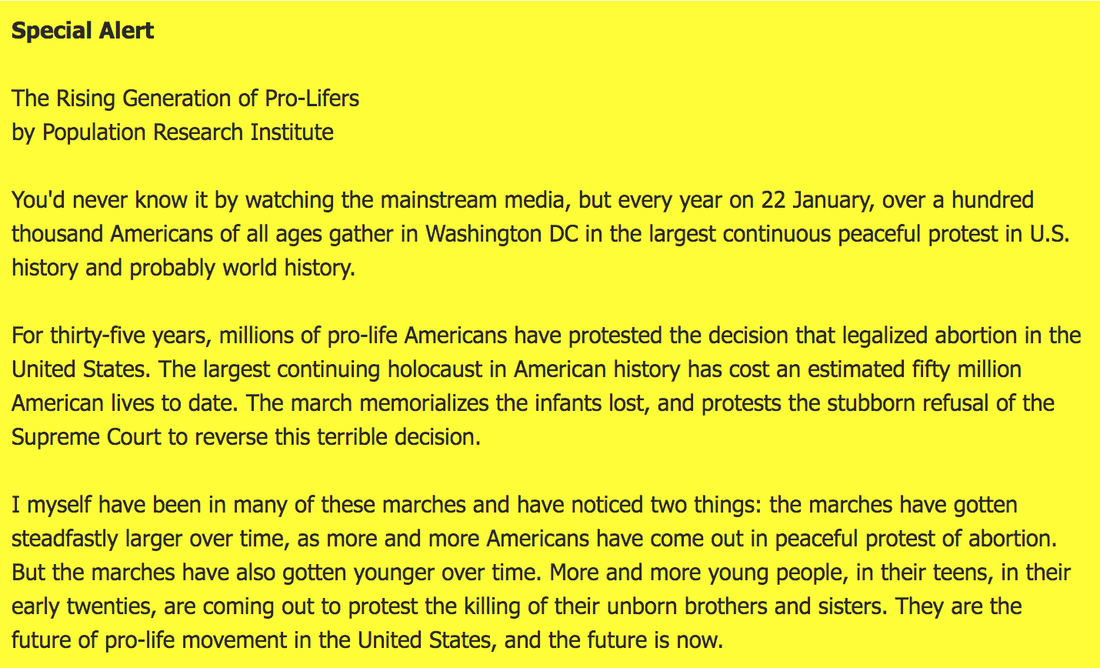
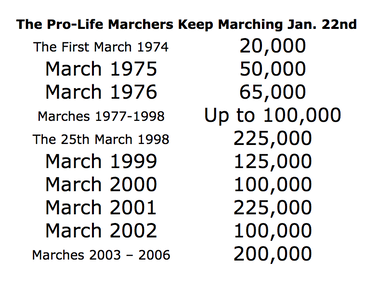
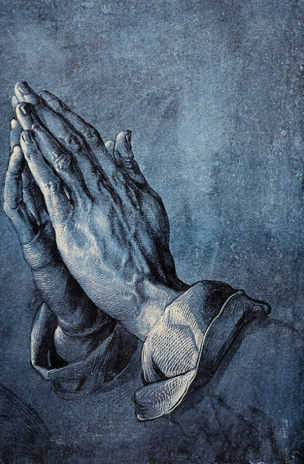
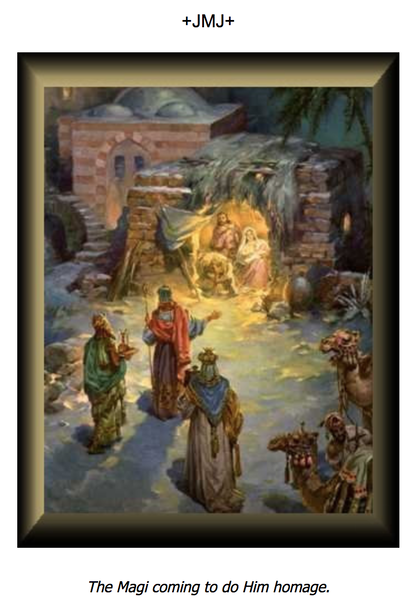
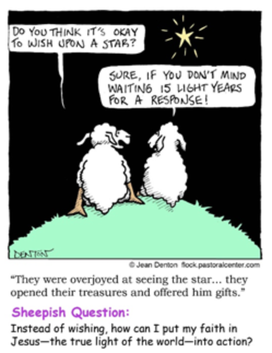
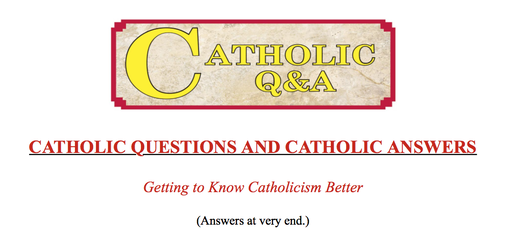
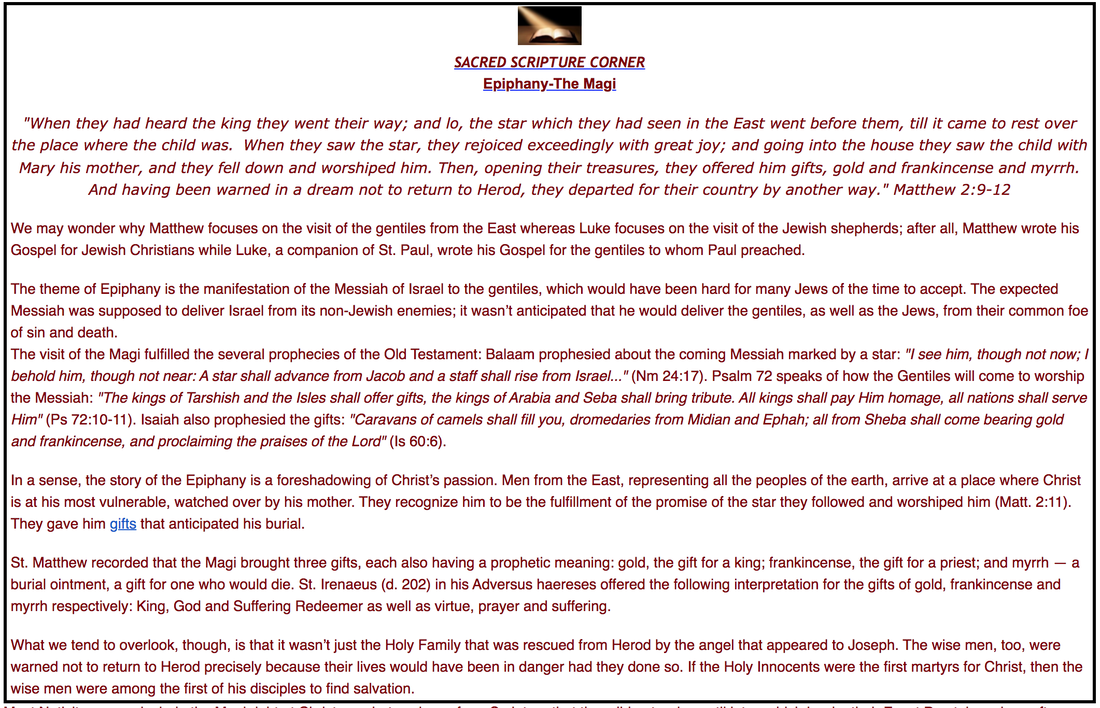
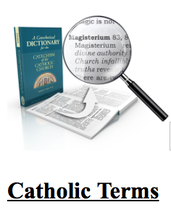
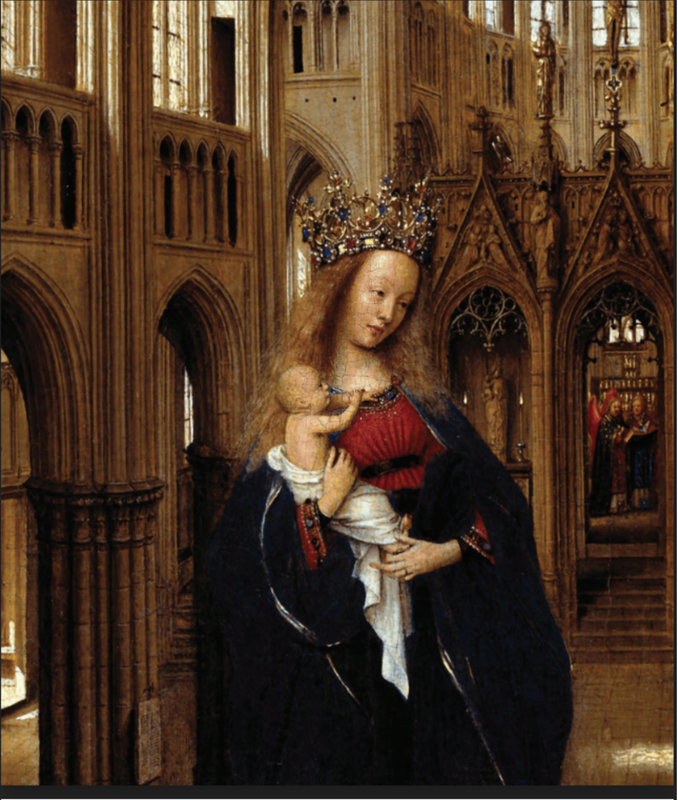
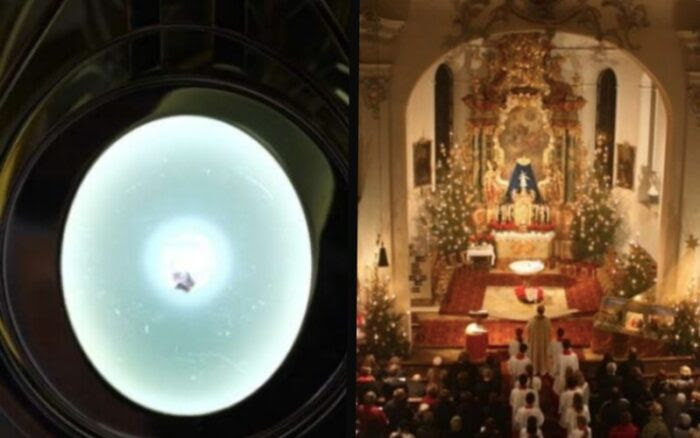
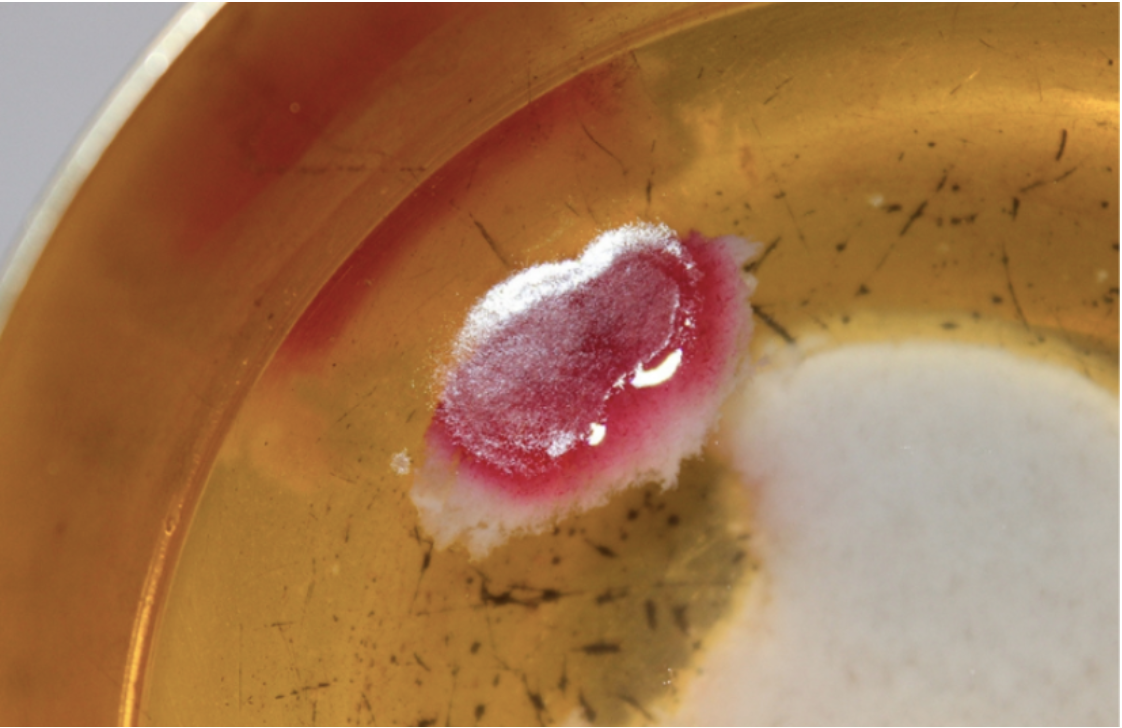
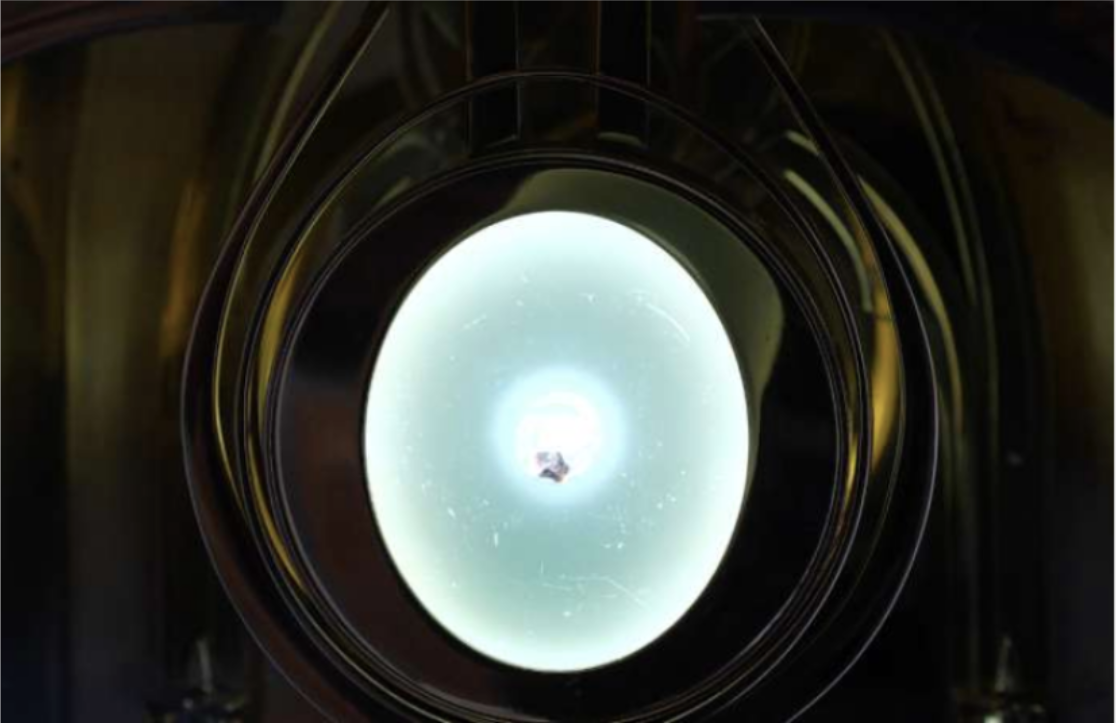
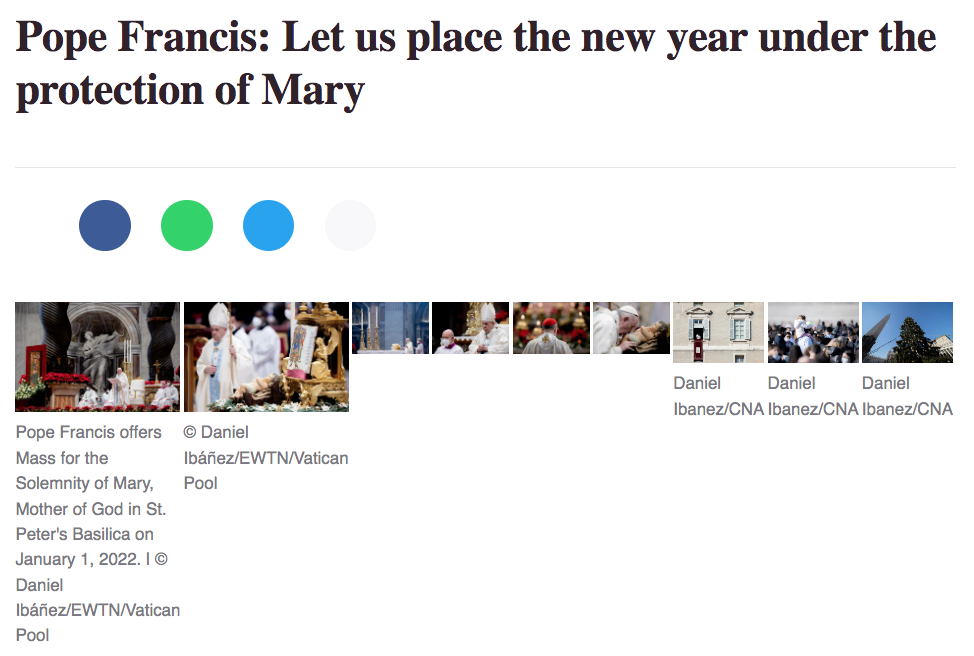




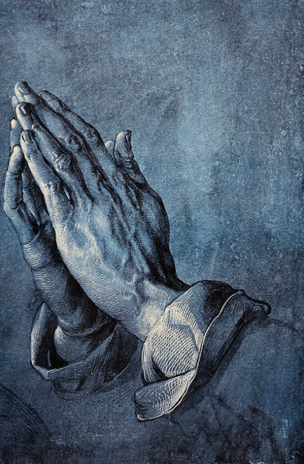
 RSS Feed
RSS Feed
